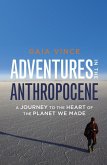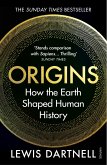Little did Isaac Newton, Charles Darwin and other 'gentlemen scientists' know, when they were making their scientific discoveries, that some centuries later they would inspire a new field of scientific practice and innovation, called citizen science. The current growth and availability of citizen science projects and relevant applications to support citizen involvement is massive; every citizen has an opportunity to become a scientist and contribute to a scientific discipline, without having any professional qualifications. With geographic interfaces being the common approach to support collection, analysis and dissemination of data contributed by participants, 'geographic citizen science' is being approached from different angles.
Geographic Citizen Science Design takes an anthropological and Human-Computer Interaction (HCI) stance to provide the theoretical and methodological foundations to support the design, development and evaluation of citizen science projects and their user-friendly applications. Through a careful selection of case studies in the urban and non-urban contexts of the Global North and South, the chapters provide insights into the design and interaction barriers, as well as on the lessons learned from the engagement of a diverse set of participants; for example, literate and non-literate people with a range of technical skills, and with different cultural backgrounds.
Looking at the field through the lenses of specific case studies, the book captures the current state of the art in research and development of geographic citizen science and provides critical insight to inform technological innovation and future research in this area.
Praise for Geographic Citizen Science Design
'The "Indigenous Communities" chapters focus on representation of traditional ecological knowledge in Canada, Central Africa, and Brazilian Amazonia. This section provides exceptional insight into the design challenges of representing, e.g., pictographs or nonstandard characters using standard XML data architecture in user interface design, citing the Sapelli cellphone app developed to overcome language and literacy barriers This open-access text is commended to interdisciplinary readers interested in the confluence of user interface design, mobile geographic information systems, cultural anthropology, international development, and digital government ... Essential [for] Upper-division undergraduates. Graduate students, faculty, and professionals. General readers.'
Choice
'This is a fascinating book describing a shift in scientific paradigms to accommodate projects which are contextualised by place and needs of local communities and their cultures, using the most innovative and user-friendly technologies and where the outcomes can be radical and empowering for those participating.'
Geographical Education
Geographic Citizen Science Design takes an anthropological and Human-Computer Interaction (HCI) stance to provide the theoretical and methodological foundations to support the design, development and evaluation of citizen science projects and their user-friendly applications. Through a careful selection of case studies in the urban and non-urban contexts of the Global North and South, the chapters provide insights into the design and interaction barriers, as well as on the lessons learned from the engagement of a diverse set of participants; for example, literate and non-literate people with a range of technical skills, and with different cultural backgrounds.
Looking at the field through the lenses of specific case studies, the book captures the current state of the art in research and development of geographic citizen science and provides critical insight to inform technological innovation and future research in this area.
Praise for Geographic Citizen Science Design
'The "Indigenous Communities" chapters focus on representation of traditional ecological knowledge in Canada, Central Africa, and Brazilian Amazonia. This section provides exceptional insight into the design challenges of representing, e.g., pictographs or nonstandard characters using standard XML data architecture in user interface design, citing the Sapelli cellphone app developed to overcome language and literacy barriers This open-access text is commended to interdisciplinary readers interested in the confluence of user interface design, mobile geographic information systems, cultural anthropology, international development, and digital government ... Essential [for] Upper-division undergraduates. Graduate students, faculty, and professionals. General readers.'
Choice
'This is a fascinating book describing a shift in scientific paradigms to accommodate projects which are contextualised by place and needs of local communities and their cultures, using the most innovative and user-friendly technologies and where the outcomes can be radical and empowering for those participating.'
Geographical Education
Dieser Download kann aus rechtlichen Gründen nur mit Rechnungsadresse in A, D ausgeliefert werden.









